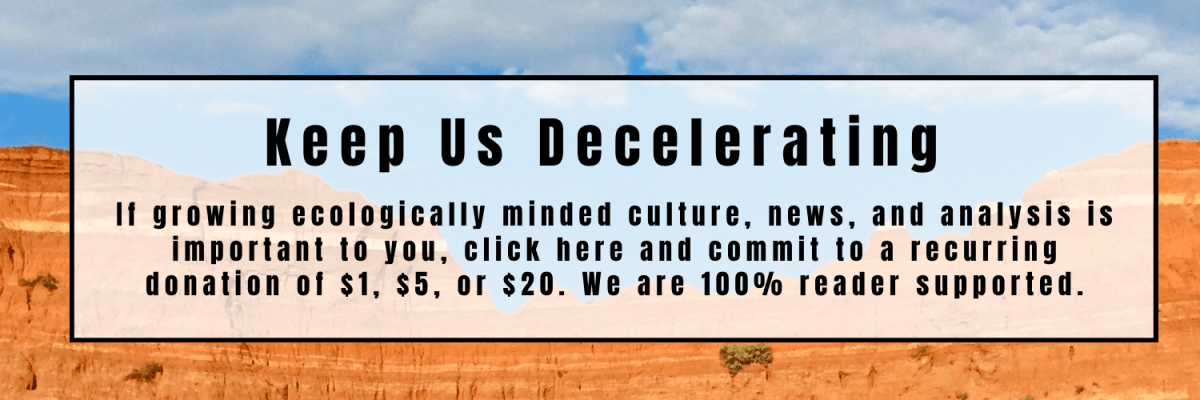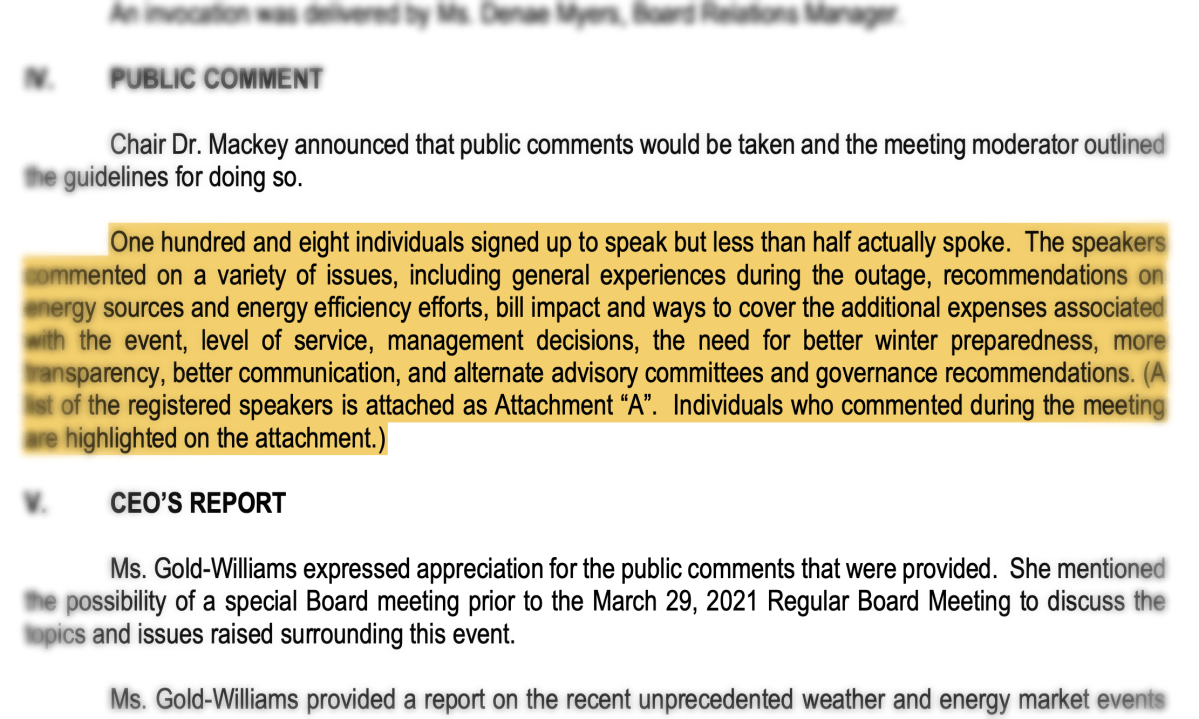Leer esta página en: Español

It’s been two months since nearly 300,000 people were cast into freezing darkness during the San Antonio Winter Storm. And while there have been plenty of meetings revealing bits and pieces of the whys and hows of the breakdown, no one seems to be taking the time to ask residents how they feel about what they just went through.
Greg Harman & Marisol Cortez
Jump directly to Deceleration's survey / Ir a la encuesta de Deceleration.
How did the failure of local energy networks impact the health of San Antonio residents? The health of their loved ones? How do local residents feel about how the City is or is not investing in their well being as climate disasters pile up all about us? Not many seem to be are asking.
Mayor Ron Nirenberg’s empaneled Committee on Emergency Preparedness, tasked with cataloging storm preparation failures and charting a best course forward, has been a glitchy affair. While the group has talked about community engagement and transparency from the start, the meetings are given little promotion. Community outreach is virtually nonexistent. Public comments are not taken at the meetings. A survey form soliciting input isn’t so much a survey to elicit the community’s full thoughts on the disaster as a comment box wrapped in a slew of demographic identifiers.
Meanwhile, community pollsters Bexar Facts have limited their recent disaster-related survey questions to those with obvious high-level policy takeaways. (Do you prefer more regulation if it means better disaster preparedness? What about renewable energy, even if it costs a bit more? And who do you blame for the blackouts during the freeze?) It’s an approach good for informing busy lawmakers on their way to a press briefing or floor vote. It’s not particularly useful for a city still processing the trauma of the storm on the tail end of an already isolating and scary COVID year.
Both the disaster committee members and Bexar Facts claim that their motivation is public service.
“We’re trying to do something here that is typically not done, which is to serve the public. … Typically these things are done to serve who’s putting the report out.”
Reed Williams, Chair
Committee on Emergency Preparedness
April 9, 2021
Bexar Facts, led by a self-described “nationally recognized political thought leader” and a public-relations rep with stints at the SA Chamber and working for Rick Perry, claims a mission to “amplify the voice of the people to shape the future of our community.”
Rather than engage or amplify the needs of actual people, both employ remote if not indifferent-sounding language. Yes, in their delivery polling questions are expected to be a value-neutral, but not the questions themselves.

Beyond these two examples, it doesn’t appear San Antonio or Bexar County have opened a platform to better understand how residents experienced the freezing blackouts or its impact on their lives and the lives of their loved ones. Beyond this, we have not seen any effort to make collective sense of how living through the City’s storm response has impacted people’s ideas of community health in a time of accelerating extreme climate events (of which pandemics are a part). Of course, not all survived that storm and related response; state records currently list 9 storm-related deaths in Bexar County.
This past COVID year has been a long, lonely, scary, and confusing one. For many, the shock of Winter Storm Uri punctured a generational sense of powerlessness and vulnerability entrenched by the city’s history of racial and colonial exclusions.
Writing on community tragedy, grief, and healing in the Journal of Community Practice, social workers Nancy Kropf and Barbara Jones emphasize that public traumas, from climate-fueled disasters like Hurricane Sandy to mass shootings, require public meaning-making processes to resolve trauma and restore community functioning.
To date, the most moving expression of shared trauma-processing occurred after nearly 110 residents signed up to speak at the CPS Energy Board of Trustees meeting on February 22, 2021, held days after power had been restored to most of the city. The expressions of grief, confusion, and rage delayed the start of official meeting business by nearly three hours.
This was an opportunity to invite residents into a deeper level of solution-seeking. Yet CPS’s own board minutes distilled these critical hours into a mere thumbnail in their minutes.

The fact that these self-generating actions have dwindled without official encouragement does not mean the community is healing. Quite the opposite.
Following a disaster, Kropf and Jones write that “communities must be able to rebuild the emotional environment and recreate systems of support and communication. In addition to rebuilding the physical environment, reconstruction of meaning must take place.”
This can be helped along by coming together as a community to “learn facts, share ideas, raise questions, and search for solutions.”
A poll such as the one Deceleration has created is only a crack in that door, the ground floor of such a process.
We hope to create room to understand the personal, intimately lived experience of the storm and resulting blackouts and at the same time invite thoughts on this disaster in relation to the age of climate disruption we are moving deeper into every year.
Frequently referred to as the Anthropocene, ours is a new geologic era where fossil-fueled human industry is the primary driver of intensifying climate disruption. (It’s something we still need to talk about; indeed, many scholars have argued that the term itself is problematic in suggesting that all humans are equally responsible for climate change, instead proposing terms such as “Capitalocene” or “Chthulucene,” the latter a term coined by feminist philosopher Donna Haraway, meaning “an age in which we humans teach ourselves to live in full and rich harmony with our fellow beings.” Nice.)
Speaking of responsibility: While our survey repeats questions about blame presented previously by Bexar Facts, we offer a fuller range of choices. Likewise, our questions about future energy choices differ in moving beyond dominant economic paradigms which regard regulation or clean energy as a cost to be borne by the public.
Over this last year, we’ve seen an increasing number of Zoom work calls opening with personal “check-ins” of one form or another. Employers and community members alike understand the need to share one another’s burdens to retain or even restore one’s health. We hope this survey provides and opening for some of that storm-related story-sharing, as well as necessary community-level solution-seeking in the creation of new social and political arrangements required in an era of increasing turbulence.
And so we invite you to check in, not only around how you have been impacted but also concerning the ways you hope our community will respond.
Results will be published on Deceleration at the conclusion of the survey. Survey results will also be forwarded to the City’s disaster committee.








